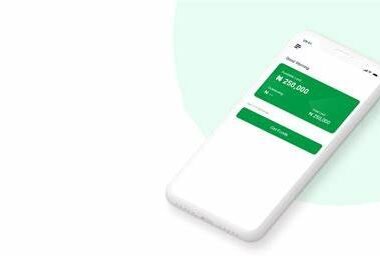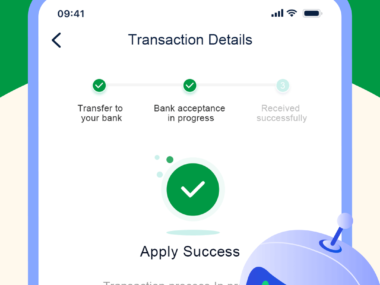Have you ever felt the desperation of needing money but not knowing how to get the financial help you need? Whether it’s to expand your business, pay for an emergency, or invest in a vital opportunity, securing a loan can sometimes feel like an uphill battle. But what if there was a way to increase your chances of getting that loan approval in Nigeria? The key is understanding the right steps, knowing what lenders are looking for, and positioning yourself in the best possible light. Let’s dive into the practical steps you can take, when you should take them, and who can help you secure that loan.
How to Increase Your Chances of Getting a Loan Approval in Nigeria
In a country like Nigeria, where securing loans can be challenging for many, understanding the process and having the right strategy is crucial. To increase your chances of getting loan approval, there are several factors you need to consider. These factors range from having a good credit history to providing all the necessary documentation and understanding the type of loan that suits your needs.
- Maintain a Good Credit History One of the most significant factors that will influence your chances of getting loan approval is your credit history. Financial institutions want to see that you have a track record of managing your finances responsibly. If you’ve been borrowing money in the past, whether from banks, microfinance institutions, or even personal loans, your repayment history is key.
How: Regularly check your credit report to ensure there are no mistakes. Keep your credit utilization low, and always pay off your debts on time.
- Create a Solid Business or Personal Financial Plan Whether you’re applying for a business loan or a personal loan, having a clear and realistic financial plan will show lenders that you are serious about your financial future. If you’re applying for a business loan, a business plan will demonstrate that you have a well-thought-out strategy for how you will repay the loan. For personal loans, a clear outline of your income and expenses will make it easier for lenders to determine if you can handle the repayment.
When: Develop your financial plan before applying for any loan. This way, you will have all the information prepared when you meet with potential lenders.
- Choose the Right Lender In Nigeria, different financial institutions offer different loan products with varying interest rates, repayment terms, and eligibility criteria. Some lenders are more likely to approve your loan application than others, especially if you meet their specific requirements. Research reputable institutions like banks, microfinance banks, or online lending platforms.
Who: Some of the top lenders to consider include banks such as Access Bank, GTBank, and First Bank, as well as microfinance institutions like Lidya, and online platforms like Branch or FairMoney.
- Provide All Required Documentation Lenders in Nigeria require specific documents to approve loans. These documents include proof of identity, proof of address, proof of income, and sometimes collateral or a guarantor. Make sure you gather all necessary documentation before applying for a loan to avoid delays in the process.
How: Verify the documentation requirements with the lender in advance. Ensure that everything is correct and up to date, as missing documents could jeopardize your application.
- Be Transparent and Honest It’s essential to be transparent with the lender about your financial situation. If there are any red flags, such as a history of missed payments or a lack of collateral, let the lender know upfront. Hiding information can lead to rejection and damage your credibility.
How: Always answer questions honestly and explain any past financial challenges you may have faced. This can help build trust with the lender.
Loan Options in Nigeria: What You Can Get, Eligibility, and Repayment
Several loan providers in Nigeria offer different loan products, each with varying eligibility criteria and repayment structures. Here’s a quick look at what some of these lenders offer:
| Loan Provider | Loan Type | Interest Rate | Eligibility | Repayment Terms |
|---|---|---|---|---|
| Swifund Loans | Personal Loans | 15% – 25% per annum | Minimum 18 years, Nigerian citizen | Flexible, from 3 months to 12 months |
| Branch | Personal Loans | 20% – 30% per annum | Smartphone, verified income | Flexible, repay within 30 days or more |
| FairMoney | Business & Personal Loans | 15% – 30% per annum | Must be a Nigerian citizen, bank account | Flexible, from 30 days to 12 months |
| Lidya | Business Loans | 10% – 20% per annum | Business registered in Nigeria | Flexible repayment plans, up to 24 months |
By carefully reviewing each loan type, you can determine the one that best fits your needs and financial situation.
How to Plan for Loan Repayment
Repaying your loan is as crucial as getting approved in the first place. Failing to repay loans on time can damage your credit rating and make it harder for you to get loans in the future.
- Create a Repayment Schedule One of the first things you should do after taking a loan is to create a repayment schedule. This schedule will include the dates when each payment is due and how much you need to pay each time. Stick to this schedule to avoid missing payments.
- Set Aside Funds for Repayment Before you apply for a loan, make sure you have a stable source of income to meet the repayment terms. If you’re unsure about your ability to repay, consider getting a smaller loan that you can comfortably pay back.
- Avoid Using Loan Funds for Unnecessary Expenses Remember that loans are meant to serve specific purposes, such as funding a business or covering an emergency expense. Using borrowed funds for non-essential items could put you in a difficult financial position.
Advice from Finance.Edujects:
On no account should you take more than you can repay. This is an opportunity, but don’t overuse it just because you have access to it freely. Don’t take beyond your capacity for income expectations. Endeavor to use the money for its intended purpose. Learn from the business side of the Igbo community. The Igbo would never take borrowed money for anything other than what it was meant for. Anyone can face an emergency. However, an emergency requires an emergency purpose, and this emergency will eventually pass.
By following these steps, you’ll significantly increase your chances of getting loan approval in Nigeria. Take your time to understand the process, plan accordingly, and use the loan wisely.






